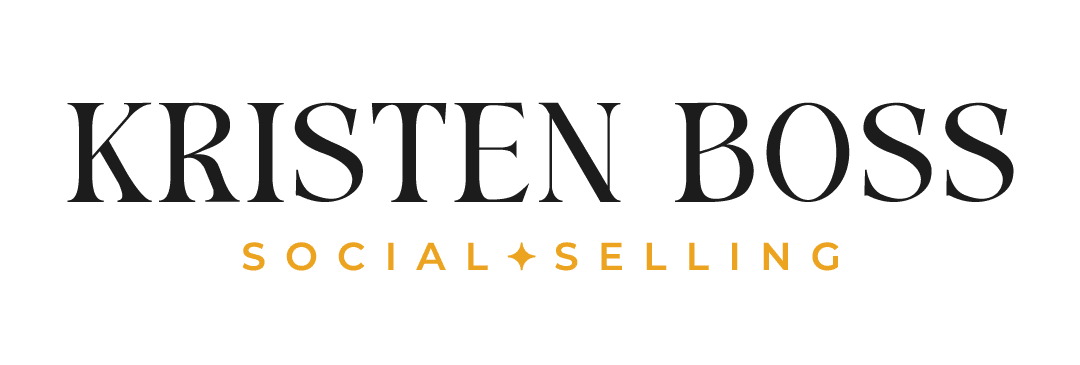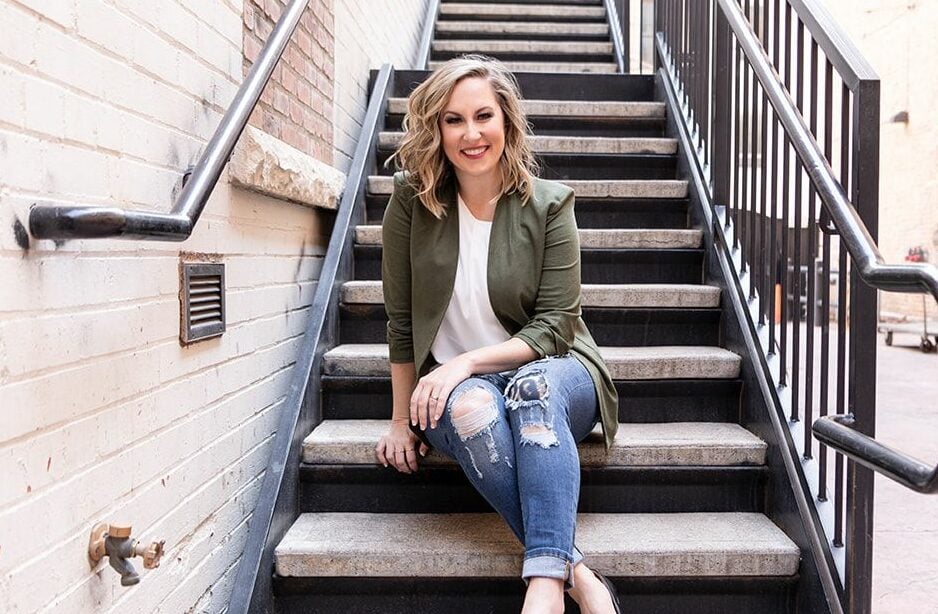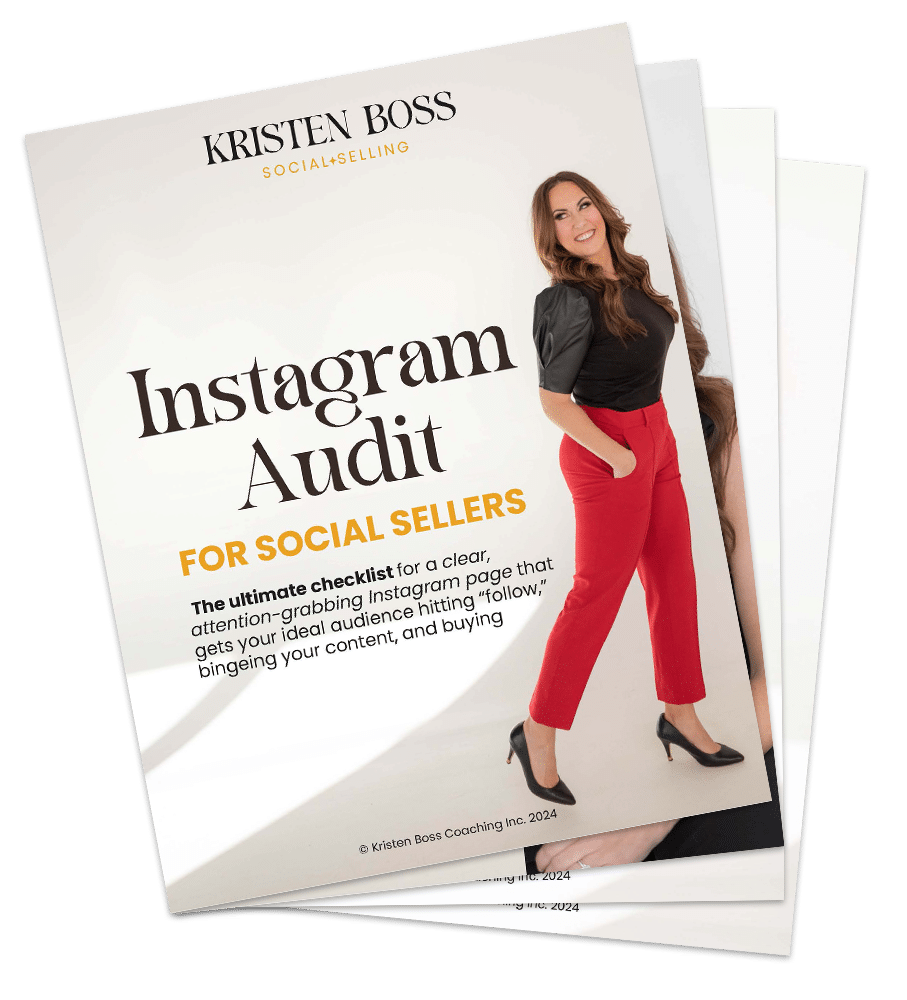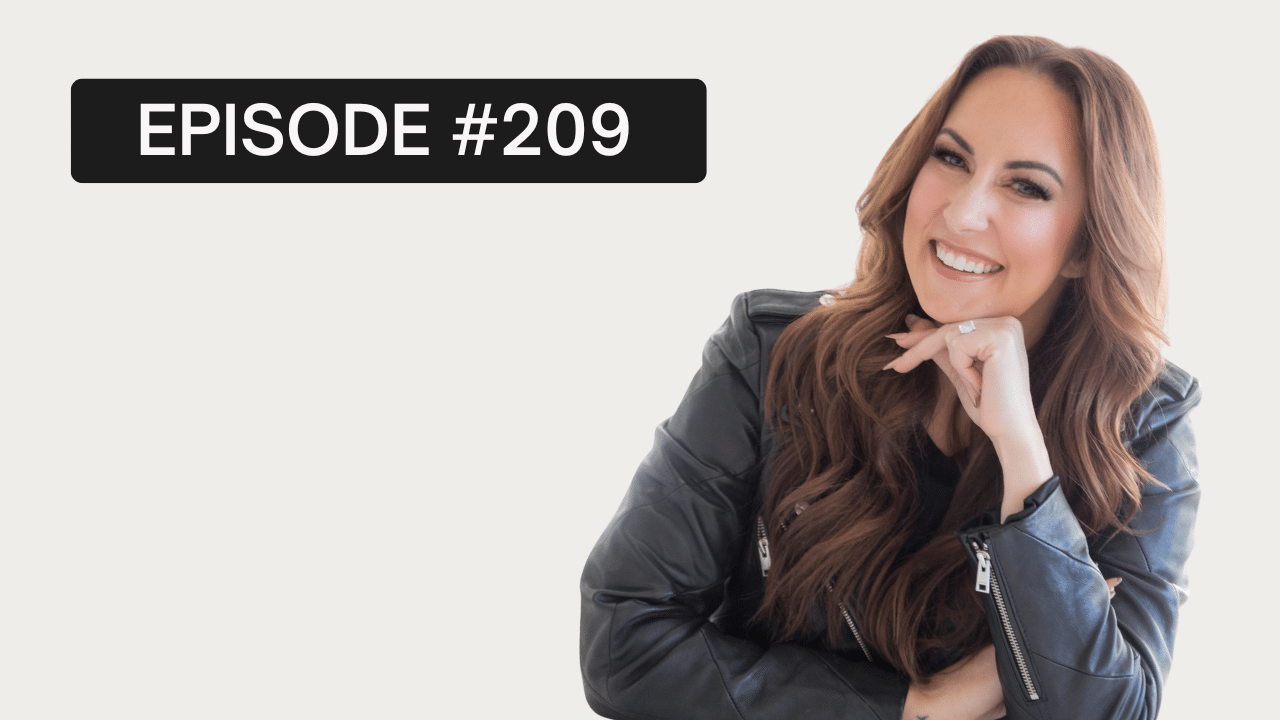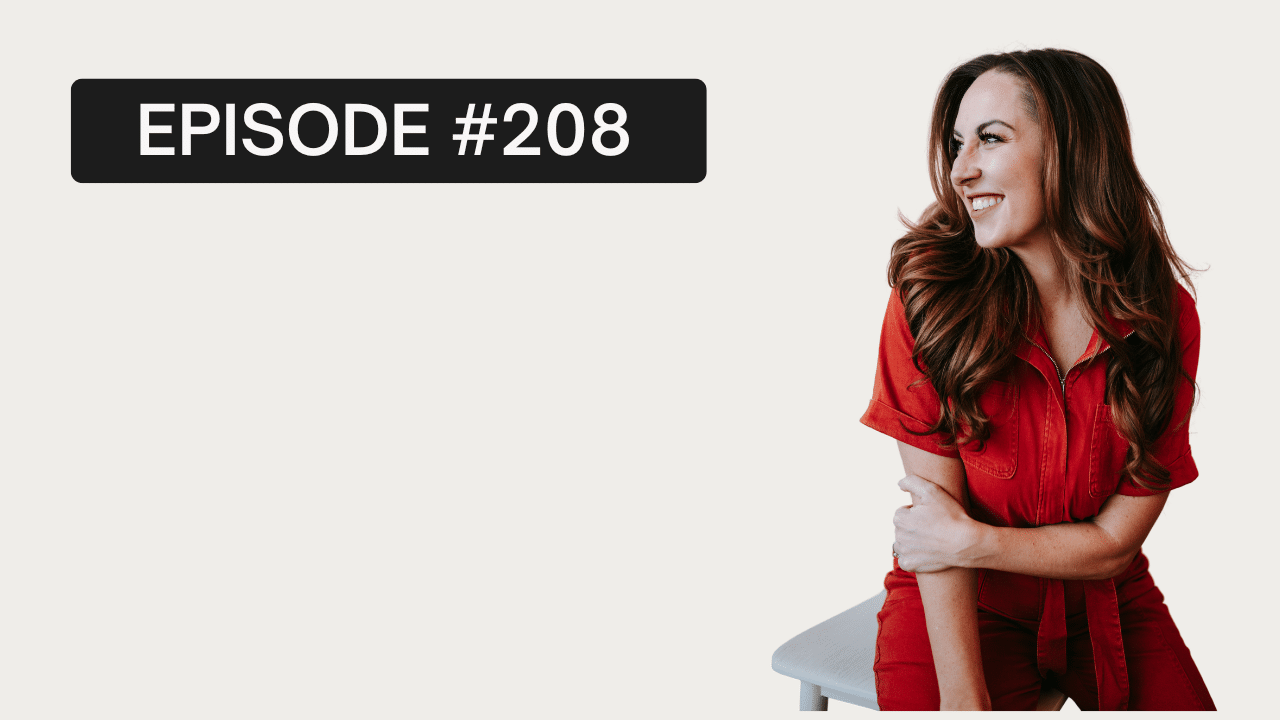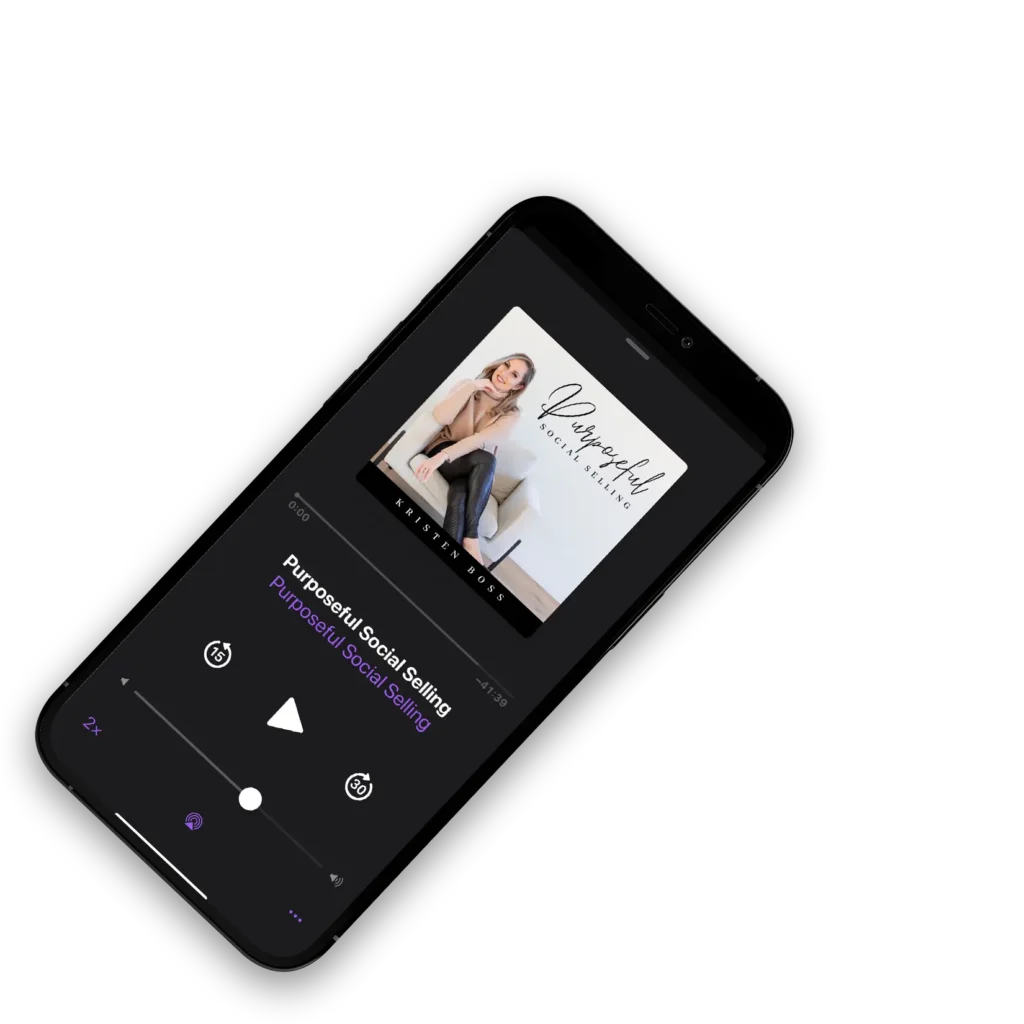Have you ever said “I don’t have feelings” or “I’m not a cryer”? Newsflash: we all have feelings, but some of us are better at avoiding, hiding, and running away from them than others. Learning the important skill of feeling your feelings is imperative if you want to grow yourself as a person and a successful business owner.
Yes, you can have big business success by avoiding your feelings and “just getting down to work.” But you will inevitably hit a ceiling or threshold and your business will level out. The people hitting massive goals in their life are the ones feeling massive feelings.
Listen in for more:
- Understanding what happens when we avoid feeling uncomfortable or painful feelings
- How to build trust in ourselves that we can survive any emotion
- How feeling your feelings is the catalyst to major growth
- Understanding that the level of willingness to to lean into negative feelings correlates to the level of success you will have
- What happens when we learn to feel and practice unpleasant feelings ahead of time
When we shut down our emotions, we shut down our growth. Period. You must practice creating safety to understand all of the parts of your humanness-including your emotions. This will allow for growth in your personal development and your business goals.
Thanks for listening! The Book Bonus is back just in time to get in on the last 90 Day Challenge of the year! When you join the Social Selling Academy between now and midnight CT on October 3rd, 2022, you’ll receive a free copy of the Goal Getter Workbook sent right to your door. Join now by clicking here.
Do you have a question about network marketing? Kristen can help! Drop your question here, and she just might answer it live on the podcast: https://Kristenboss.com/question
Connect with Kristen:
If you’re ready to learn the simple process of running your social selling business online, you have to check out Kristen’s live group coaching program! The Social Selling Academy: www.thesocialsellingacademy.com
Do you have a business full of customers and almost no builders? You’re in need of a reboot! Learn the three skills you can learn that will completely change your recruitment game. Check it out here.
Transcript for Episode #131 Embracing Your Feels:
Kristen Boss (00:05): Welcome to Purposeful Social Selling with Kristen Boss. I’m your host, Kristen Boss. I’m a mindset and business coach with more than 15 years experience in both the product and service based industry. I believe that social selling is the best business model for people wanting to make an impact while they make serious income. This is the podcast for the social seller who is tired of feeling inauthentic in their business and desires to find a more purposeful and profitable way of growing their business. In today’s social media landscape, in this podcast, you will learn what it takes to grow a sustainable business through impactful and social marketing. It’s time to ditch the hustle and lead from the heart. Let me show you the new way.
Kristen Boss (00:48): Hi friends. Welcome to another episode. Hope you’re ready for this one. Let’s go. It’s going to be a topic that some people, a lot of people have a lot of resistance to. And I’ll admit, I think this is an area I have had tremendous growth in the last, I would say three years of my life really. And it is an area I would say that I had a lot of resistance to and maybe a lot of not negative thought, but maybe just I didn’t understand it. I didn’t get why, uh, if you’re familiar with the Enneagram, I am an any gram three. I like to joke with my friends, my family, that I’m a three wing three wing three, which means we are known for our desire to achieve. We are performers. We tend to like to be admired. Go figure. But we often find our worth in our work, in what we produce.
Kristen Boss (01:41): So my work, really my whole life, but my work that I’ve been focusing on in the past few years is really detaching my worth from my work, my need to constantly produce 24 7 in order to be seen as a valuable person. And I really do believe this is a struggle for entrepreneurs on many different levels. But, and, and here’s the thing too, is I am somebody who truly loves my work. I love the challenge of my work. I love the mental focus and the engagement that it requires me. I love the problem solving. I love, love my work. And I don’t always notice when I’m running to my work to escape something. And that has been a huge work in progress for me. And in fact, you know, it was part of what I wrote in my book, Pivot to Purpose is about understanding that part of myself and learning to work more purposefully instead of just working in this frantic state of chaos that was causing health issues.
Kristen Boss (02:38): And it was robbing me of a lot of joy and fulfillment in my life. And you know, I believe as entrepreneurs we get into business to enrichen our life. We get into business because we want more. And I think that’s a beautiful thing. But sometimes I think we lose sight. I see so many people, so many entrepreneurs losing sight and giving up fulfillment in the now. Like, I mean, meaningful fulfillment and meaningful purpose in the now in order to hopefully have it later. And they don’t know how to enjoy the journey that they’re in. And they don’t take care of themselves. They don’t take time off, They don’t rest. And I’m not talking about like playing the long game and instant gratification versus delayed gratification. That’s not the same thing as talking about emotional fulfillment and wholeness. And the reason why I wanted to talk about this concept of embracing your feels as an entrepreneur is a lot of people say to me like, that’s why are emotions so important?
Kristen Boss (03:40): Is it actually necessary? I learn to feel, why is it so important? Why do we have to talk about feelings? And it’s so funny, without a doubt. Every time when I have, um, my mastermind, when I have new members join, I will get the toughest cookies and I can see them because I was, I was them too. I was the same way where they’d say, You know, I don’t cry now, but I don’t cry. I don’t feel feelings. I just work. And hey, I can respect that because that was me. But there is a part of that where we, when we learn to shut off our feelings, we’re shutting off our humanity where we’re shutting off the most beautiful parts of ourselves. And eventually we hit a threshold of our growth. Like you might be able to get pretty far in your business while shutting down your feelings and just going and grinding and like just not caring so much and not feeling and just getting to work.
Kristen Boss (04:34): Because that was me. I was just like, No, just get up and we go to work. But eventually you do hit a threshold. And in order to go past that threshold, you do actually have to be become somebody who becomes safe with your emotional experience and becomes safe with your feelings and understanding those parts of yourself as a human being, as part of having the human experience. And if you’re like, Well, what does, you know, feeling feelings have to do with personal growth? And the answer is everything. Learning to sit with your emotions, learning to lean into uncomfortable emotions on purpose is a huge indicator for the level of success you will have and how much growth you can have. There’s a reason why we call it growing pains and not growing tickles. It doesn’t feel good to grow. It’s not always a pleasant experience where I’m like, Yes, please, I’ll have some more of that.
Kristen Boss (05:26): So I want to share with you some things for you to think about when it comes to learning to have emotional compassion with yourself as a human being and why it’s important to feel your feelings. And this happens in my academy as well. They’re like, Do I have to feel my feelings? I was like, Yes. Because in order to grow, you have to become somebody who is okay feeling all feelings. Somebody who’s willing to sit with any feeling, because that is truly the secret to massive growth. When I think of all the necessary things I had to do to grow my business, writing a book, putting out a podcast, starting the social platform, all of those things, I had an emotional experience with every single one of those things I did. For example, I felt an intense amount of fear. I felt an intense amount of discomfort.
Kristen Boss (06:21): I felt an intense amount of, uh, doubt of self, doubt of insecurity. There have been times when when you start something new, you have to be willing to feel. You have to be willing to emotionally experience potentially the feelings of inadequacy or potentially humiliation because you could put something out there, put all the work out there, and it won’t work out. When people say like, I don’t know why I’m not going for big things, often it’s because there is an emotional experience that you might have to experience in doing the thing and not just one experience. You might have two emotional experiences. And let me break it down for you. Let, let’s do starting a podcast. So there was the emotional experience I was having in deciding to start a podcast. I had a lot of doubt. I had a lot of uncertainty, insecurity. I had a million questions rolling around my head thinking, Well, who’s going to listen to it?
Kristen Boss (07:18): How on earth do I find an audience? Isn’t there enough people talking about business? Isn’t there enough, You know, YouTube channels out there? Are there enough people talking about the exact thing that I’m talking about? And the emotional experience of deciding to do a podcast was rather unpleasant because I felt a lot of uncertainty. I felt insecure, I felt really unsure. I felt fearful, and I felt doubtful. Those are not emotions I like signing up for. However, it is part of, you know, having an impact in the world and having a service and serving people is like, Yeah, I sign up to feel these things. And so that was the emotional experience in deciding. And then there’s the emotional experience in the doing. So there’s the experience in your deciding experience in the doing and in the doing, I had to overcome feelings, like same ones, fear, uncertainty, doubt.
Kristen Boss (08:09): But now that something is actually going out in the world, now I’m potentially putting out my opinion or I’m putting out content in order for people to have an opinion out there. Like, I’m literally going to put something in the world that strangers on the internet can find and have an opinion on. There can be hats and there can be trolls that come and find this and make a comment and it feels bad again. Now I’m, I’m potentially putting myself out there. Being vulnerable, being visible literally opens me up to potentially experiencing something like humiliation or rejection or feeling misunderstood or feeling shame. Like this is why when people say, Well, why didn’t I put the podcast out there? There I’d be like, Well, what do you think will happen if it doesn’t go well? Well, people will see that I launched something, then I failed.
Kristen Boss (09:01): Okay, why is that such a big deal? Well, how will it feel when you think people saw you launch something and it failed? Oh, I’m going to be embarrassed. Okay, why is that the worst feeling in the world? But it, but honestly, when we think about it, think about your nightmares, sometimes your nightmares are like really embarrassing dreams, like showing up naked to class and you’re like, humiliated. No, no, I don’t want to feel humiliation, embarrassment, and shame. And that’s why it’s a nightmare. So when we’re about to, and I do believe when we create something, when we actually take the time to create something that’s close to our heart and meaningful and we put it out in the world, I do believe that is a form of nakedness. It is the form of putting herself out there and people critiquing it. And when it’s something that matters to us, it’s absolutely terrifying to stand before people with something that’s meaningful for you and for them to disagree.
Kristen Boss (09:58): I remember that was very much how I felt writing a book. I was just like, Okay, this feels great writing emails to my email list because you know, they’re my people, they sign up for it. But what if someone goes, and Barnes and Noble picks up my book and they think it’s trash? And now granted, I’m sure there are people that have picked it up and thought it’s trash because this is just, you know, statistics. Not everyone in the world is going to love what I do, and that’s okay. But again, it felt like a form of nakedness, of exposure, putting myself out there and feeling vulnerable to having an emotional experience. And it’s the emotional experience I might feel when I read a review when someone says, This is one star and it’s garbage. This is why people stay small. This is why people don’t make big decisions, is because they are afraid not just of the outcome, but of the emotional experience.
Kristen Boss (10:49): They will associate with the outcome. Because the outcome in and of itself, it could be like, okay, like for example, um, I’m kind of, I’m trying to think of something that’s like non-business, but I would say like, let’s say my husband and I are both watching a football game and he’s very emotionally invested in the game and I’m kind of passive or whatever. And the outcome of the game is the team he was cheering for lost, He’s going to have an emotional experience with that loss. Whereas I’m going to be like, Hmm, why? Because it didn’t matter to me. It’s always how we interpret our outcomes that determine the emotional experience of the outcome. Like, what did you make that out outcome mean? Why is that painful to you? And so this idea of feeling feelings, it’s you have to learn to feel unpleasant emotions on purpose.
Kristen Boss (11:39): And the only reason you have to be willing to, you know, sit with uncomfortable emotions is because if you haven’t normalized that for yourself, if you haven’t made it a safe thing for you to do, where you can sit there and say, Yep, I can handle some disappointment. Yep, I can handle some frustration. Yeah, I can, I can handle being misunderstood. Because if you aren’t willing to feel that, then you’re not going to be willing to do the tasks necessary that might put you in the way of potentially feeling that way. So when I tell people, Okay, hey, you have to understand what you’re feeling and why that’s important, because your feelings determine your behaviors. Like if I’m feeling apprehensive or if I don’t, if I feel overly anxious, maybe that’ll put me into a free state and I won’t take any action in my business.
Kristen Boss (12:27): You have to understand, okay, I’m feeling anxious. Why am I feeling anxious? Is it safe for me to feel anxious? And that’s a whole nother podcast episode. I’ve learned so much about my own anxiety in the past two years, and that’s been a healing journey for me as well, learning to kind of make peace with my anxiety. But here’s the people who are out there making big moves, and they are getting big results are people who lean into uncomfortable emotions on purpose. They lean into and they decide on purpose, I’m going to do this and I’m going to feel uncomfortable. I’m going to do this, and I might feel rejection and I’m going to be okay. It’s literally deciding ahead of time. I’m going to choose those emotions instead of hiding from them and saying, I don’t need to feel anything. And a lot of people, not just with like feeling your feelings, keeping you from doing what you need to do, understanding your emotions also helps you understand why you, why you’re not taking actions in your business, why you’re, why you’re hiding in your business.
Kristen Boss (13:30): And a lot of people, here’s the thing, they’re like, Oh, I don’t feel feelings. I’m like, you do feel feelings. You’re just feeling them or you’re, you’re resisting them or hiding from them and repressing them by watching Netflix, by scrolling on your phone, by doing impulse shopping on Amazon, by running, going to sugar and foods or turning to alcohol. Like we are humans that are constantly feeling. And a lot of times if we aren’t allowing ourselves an emotional experience, we end up buffering and hiding in other things. So when people are like, I don’t know why, when I sit down to work my business, I’m always, you know, I end up watching Netflix instead, or I end up, you know, reading a fictional book, or I end up doing anything except for the things I told myself were important and that mattered. This is why emotional awareness is so key, because in that moment, would I be able what I would say to, to you or to that student, as I would say, Okay, let’s imagine you did not go and watch Netflix.
Kristen Boss (14:34): Let’s imagine you actually had to sit down and work your business. What do you think might come up for you the moment you sat down to write a post, send an email, record a webinar? What do you think would come up for you? And almost always would be like, frustration, annoyance. Maybe I’d feel confused, maybe I’d feel lost. Maybe I’d feel discouraged, discouraged that like, Hey, my last webinar didn’t go well. So now when I sit down to record a new one, I don’t feel good. I don’t feel motivated, I feel frustrated, I feel resentful. So instead of feeling the emotions of frustration, annoyance, and those things, what they’re doing is they’re buffering away from feeling those feelings and choosing another activity like Netflix, like playing game board games or gaming or hiding on their phone or scrolling. It’s a form of hiding from your emotional state.
Kristen Boss (15:34): And when we can learn to be less afraid of our feelings, we can actually bounce back from failure a lot faster. We can take risks, we try new things because listen, if you’re afraid of discomfort, you’re never going to take risks because everything about taking a risk is highly uncomfortable. It’s uncertain. There’s no guarantees. But some of the most successful people in the world are people who regularly take risks. And those are people who are okay feeling uncomfortable. You have to normalize these emotions for you so that you can bounce back from disappointments and setbacks a lot faster. And I see, I do see this happen with people is they’ll go really hard with something and then it fails or it falls apart, or it falls short of the mark that they hoped it would reach. You know, they didn’t quite hit the goal. And what they experienced is an intense disappointment, intent, maybe even shame, maybe embarrassment.
Kristen Boss (16:36): They feel all of these really intense emotions with missing the goal. And what happens is because they don’t let themselves feel the emotion, be with the emotion, process the emotion, and have compassion on themselves, like I’m a human being, of course I’m disappointed. Of course it would, it would be hard for me to, you know, see that my, I had fallen short on the goal and that we didn’t, we didn’t hit it, and that I didn’t make the money. Of course, I’m scared, of course, it’s normal for me to feel disappointment. Of course, it’s normal for me to feel frustrated, but instead like creating that allowance, what I see people do is they shove it away and then they just stop setting goals. They just stop. They take a break for a while, because the hurt was so devastating to them that they became so afraid.
Kristen Boss (17:24): Here’s, here’s the key here, because that one instance was so painful for them, they decide, I don’t want to keep putting myself out there ever again because I never want to feel that way again. And I get that there have been massive, massive emotional tolls and hits I have taken in growing my company to where it is. There have been hard, hard circumstances that I have had to weather, and it would have been so easy to say, I’m done. I’m never, I never want to feel that again. Let’s just avoid that. And I, I’m just not going to continue with that offer or continue with the industry or whatever it is. It would’ve just been so easy to stop. But instead learning to feel the feelings, realizing, okay, I can handle disappointment, I can handle some heartache, I can handle frustration and letting myself have those emotions.
Kristen Boss (18:19): And suddenly what happens is when we, it’s kind of like, I always feel like emotions are like the monster under the bed for a child. Like there’s, they’re so afraid, Oh, there’s a monster under bed, the monster, the under the bed. And then you have to like, look under the bed and be like, Oh, it’s not even there. Sometimes I think we have more fear of the emotion than of the emotion itself. Like we’re, I’m so afraid of feeling disappointment that my fear of disappointment is actually greater than the feeling of disappointment itself. I know that sounds like cyclical and, and maybe odd, but I do think that is what happens is like some people are so afraid of feeling uncertainty that I’m like, But you probably feel it in other areas of your life and you’re fine. Why are you not okay feeling it here?
Kristen Boss (19:06): So in order to be somebody who, who’s takes risks and does big moves in their business, you have to be somebody who’s willing to feel big emotions, people who make the biggest changes. And I’m telling you, people who grow 10, 20, 3000 million companies, billion dollar companies, they are people who handle very big emotions like uncertainty and risk and failure and disappointment and frustration, betrayal, like there’s so many emotions. And if you’re not willing to feel those things, if you’ve told yourself, I’m not a feeler and I don’t want to feel them, what you are doing is, is you’re shutting down growth. You’re shutting down the avenue in order for you to grow again. That’s why I said it’s the grow growing pain. It’s not growing tickles. So I want you to think about today, just as you’re going about your day, what emotions are you most afraid of experience in your business?
Kristen Boss (20:05): And how can you be somebody who gives yourself permission to feel them and you trust yourself to feel them, You trust yourself. Okay, I’m capable of experiencing disappointment and feeling disappointment, and I know I can come back from disappointment. That’s why I’ve always loved the saying, you know, you’ve survived a hundred percent of your bad days. Like, yeah, you have felt bad, hard, heavy emotions before. It won’t kill you to feel disappointment. It won’t kill you to feel frustration. It won’t kill you to feel sadness. And it does. It’s not, it’s not forever. But that’s a, that’s what we think happens with emotions. We think they’re there forever. We think we’re never going to escape them. But when you process them, emotions do actually move through and pass through your body. Pro. Maybe I’ll bring on my therapist because she’s amazing and this is so much work I have done because I didn’t realize how much I wasn’t feeling in my life on purpose for a long time where I was hiding, I was hiding in my work.
Kristen Boss (21:15): That was, that was how I felt my coping mechanism for hard feelings was running to my work. And if there was hard feelings in my work, you know, I, I still dug in, but it might be, you know, think about why you might be grabbing that glass of wine. At the end of the day. Think about why you might be grabbing, going for sugar. Are you telling yourself like, I’ve had a hard day, I deserve this. That’s a form of emotional eating. Like, I don’t want to feel the sadness of everything I went through today. So I want to distract myself with a sugary cupcake because that releases all the dopamine. Again, like our emotions determine far more than we think. And we could say, I’m not a feeler, I don’t do feelings. That was me. But my growth was learning to feel them, learning to process them and learning to embrace them and not sha and not shame myself for having a human experience, the human experience of anxiety and hurt and disappointment.
Kristen Boss (22:06): Listen, you can’t have joy without sadness. We, we wouldn’t know what joy felt like unless we also understood what sadness felt like. The contrast is what I believe makes the human experience richer. I wouldn’t know hope unless I knew sadness. I wouldn’t know hope unless I knew loss, right? I wouldn’t know anger unless I knew peace. All of those things, it adds texture, adds color, it adds nuance to our human experience. And the sooner we stop judging ourselves for being a person who feels feelings and sadness and disappointment, the sooner we allow ourselves to really fully show up in all areas of our life, in business, in relationships and friendships at home, it’s okay for me to feel this. I trust myself to feel this, and I’m going to process it and I’m going to keep going. I also can’t re I, I cannot recommend therapy enough.
Kristen Boss (23:04): It is like the greatest gift you can give yourself. There are, there are resources. So I also, I’ll add this as well, like if you are somebody where you need help processing your feelings, if you need help accessing emotion, learning to process, learning to feel safe with your thoughts, that is absolutely a great time for you and a great reason for you to work with a therapist. And it’s, it doesn’t have to be always, but this is what they do. This is what they help with in a very safe way. And I can say that’s been huge for me. And also I just kind of want to remove the stigma around it and be like, yeah, all of us humans, we need someone to help us with our brains and to learn to cope and process and operate in healthier ways as adults. Because again, if we aren’t learning to feel our emotions, we will feel it or hide from our feelings through other things that might be harmful where we check out. Because we don’t want to feel the hard. This is why embracing your feels is so important, because it’s not just embracing your feelings, it’s embracing being a human and it’s embracing all the wonderful parts that comes with being a human and having the human experience. So I hope this was helpful to my non feelers today,. And just remember, the sooner you come to terms with letting yourself feel uncomfortable emotions, the more you are opening up yourself to having the growth you want. We’ll catch you in the next episode.
Kristen Boss (24:41): That wraps up today’s episode. Hey, if you love dtoday’s show, I would love for you to take a minute and give a rating with a review. If you desire to elevate the social selling industry, that means we need more people listening to this message so that they can know it can be done a different way. And if you are ready to join me, it’s time for you to step into the Social selling Academy where I give you all the tools, training and support to help you realize your goals. In the academy. You get weekly live coaching so that you are never lost or stuck in confusion. Whether you are new in the business or have been in the industry for a while, this is the premier coaching program for the modern network marketer. Go to www.thesocialsellingacademy.com to learn more.
